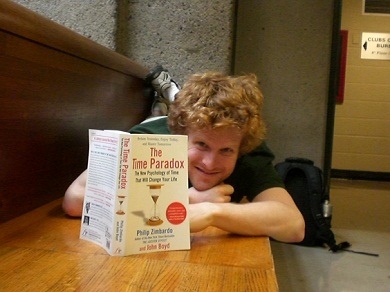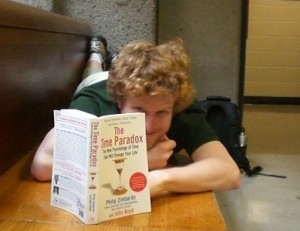Interested in getting into graduate school? So was I. My problem was that I was rejected from three graduate schools the first time I applied.
I have since been accepted into one of the schools that originally rejected me. During this process, I have learned a lot about how grad student selection tends to take place. I do not claim to be an expert on this topic, but I do feel that my experience and knowledge may be helpful to some people considering this life choice.
Graduate school is a definite goal for many of us who are passionate about knowledge and study. It is important to keep in mind that the competition for admission can be stiff, as there are usually more applicants than available positions.
How students are selected
The process of applying to grad school can be complicated and demanding. It is important to know what type of selection process is typical for your field and/or school.
Selection by committee
This approach to selection is common in non-thesis programs where you do not have a direct supervisor. These programs will often have a committee go through all the applications received. This group of people will analyze each applicant, rank them, and offer positions to the highest ranked people.
In this case it is often impractical or impossible to get to know any of the people who will be selecting you. This relatively common process bears a lot of similarity to applying for a high-end job. As such, you may want to approach this application process much as you approach applying for a job. Your qualifications, volunteer experience and how you present yourself through words are of primary importance.
Selection by supervisor
Now I will talk about what I think of as the more traditional approach to graduate studies. This selection process is typical if your program has you being supervised directly by one or more professors. The professors are the people who are primarily responsible for helping direct you in your academic and research path. To a great extent you work for them and with them. Good supervisors seem to be a mix of peer and boss.
The department might receive several hundred applications. They sort them into piles according to the sub-fields that are present in their subject area. For example, physics has experimental and theoretical sub sections, but it also has sub-sub-sections that are much more specific. A big department will end up with a number of distinct piles.
For example, a professor in experimental condensed matter physics might directly receive only those applications that cite her/him as the proposed supervisor. Alternatively, they might be presented with, or have access to, the pile of applications that are for experimental condensed matter physics, maybe with the applications that cite her/him as the proposed supervisor on top of the pile.
Professors choose who they want as grad students
One of the key things to understand here is that a professor will only even look at applications if they are looking for a new grad student. It is possible that a professor might have funding available, but might feel up to the challenge of digging through a huge pile of applications. They have to keep in mind that they are essentially agreeing to pay someone a salary for a couple years. From just an application it is pretty hard to be sure that you will like a person, an important factor for supervisors to consider as well as students. Their quality of life also depends on the quality of their interactions with their grad students.
As early as possible, talk to any professors that are doing research that interests you. If possible, talk in person. You might be working with them for years, and it is ideal if you can talk to them in person to see if they jive with you. This is a great opportunity to ask any questions that concern you with regards to the possible graduate work you might be doing.
Professors direct funding instead of departments
This is one fact that wasn’t actually that clear to me as an undergrad. At least in the Canadian universities that I have been in, professors are given direct grants for their research that they allocate at their discretion. If you are a student in such a department, your financial support is primarily through your supervisor’s research grants.
How do I talk to professors?
How to get it started? This is what I did at McGill in Montreal, Canada.
My method was to walk up to offices that had their doors open and knock as I stood in the doorway. When the professor asks what I want, I would ask if they have a moment to talk to me about grad studies. At this point most profs either perk up and invite me in, or tell me that they are busy. When they are busy, I found most profs would usually give me a time that I might drop by when they are less busy.
I found the professors at McGill to be very friendly. They were also very willing to talk about what work they and their group do. These people are generally doing what they do because they are passionate about it at some level. I also found that professors will be very up front with you about whether they have any open positions in their groups.
Email and phone if you have no recourse
If you can’t physically go to the graduate schools you are interested in, all is not lost. While email and phone aren’t as good as a face to face meeting, they are infinitely better than nothing. If you are dedicated with your efforts to contact people who you are interested in working with, then at the very least when they look through the applications directed at their department, your name might catch their eye a bit.
A very likely result however is that by dint of your efforts to contact and communicate, you will rouse their interest in you as a potential graduate student. Even without face-to-face meetings it is possible to cultivate a relationship through which you can acquire a graduate position. The more technically savvy professors may also be convinced to give you some time via a Skype video conference as well. While even Skype isn’t as good as a face to face meeting, it does have a lot of advantages over email and phone, at least as far as actually getting to know your supervisor is concerned.
I think this is crucial
As far as I can tell, this is the single most important facet for getting into graduate school under a particular supervisor. The most important thing is to start and pursue a genuine conversation who are doing things that interest you.
Don’t be too timid, don’t be too overbearing, just talk to them. While the details of how you conduct yourself depend a lot on which medium you are using (in person, email, phone, Skype), I do have a couple tips.
Do your homework on who they are and what they do. I’d highly recommend knowing at least a bit about what their research focus is before bothering them with a conversation and/or questions. You should be able to tell them why you are interested in working with them. What aspect of what they do interests you?
Most professors have a personal webpage on which they list their research interests and/or publications. If nothing else works, you can look up their work on a academic search engine like Google Scholar.
Feel free to introduce yourself in a way that seems to make sense to you with regards to your field. For me, this included telling professors that I had recently finished studies in Regina where I acquired four undergraduate degrees and am now interested in pursuing graduate studies in physics.
Feel free to ask questions. Perhaps you are interested in hearing more about some aspect(s) of their research. Perhaps you want to learn more about what it is like to be a graduate student. Perhaps you want to know who their favourite musical artist(s) are.
Ask whatever questions occur to you as being important enough to warrant them spending the time to answer them. This is your judgement call. The questions you choose to ask will say a lot about who you are and how you will approach your possible graduate studies with this professor.
Start early. If you are planning to apply in a couple months, get going on this. It is woefully easy to procrastinate on, but it is the single most important factor for getting your foot in the door. If you want to do graduate work that excites and challenges you, start emailing professors today.



 I like to read. This post is about how I have integrated more reading into my life.
I like to read. This post is about how I have integrated more reading into my life.
